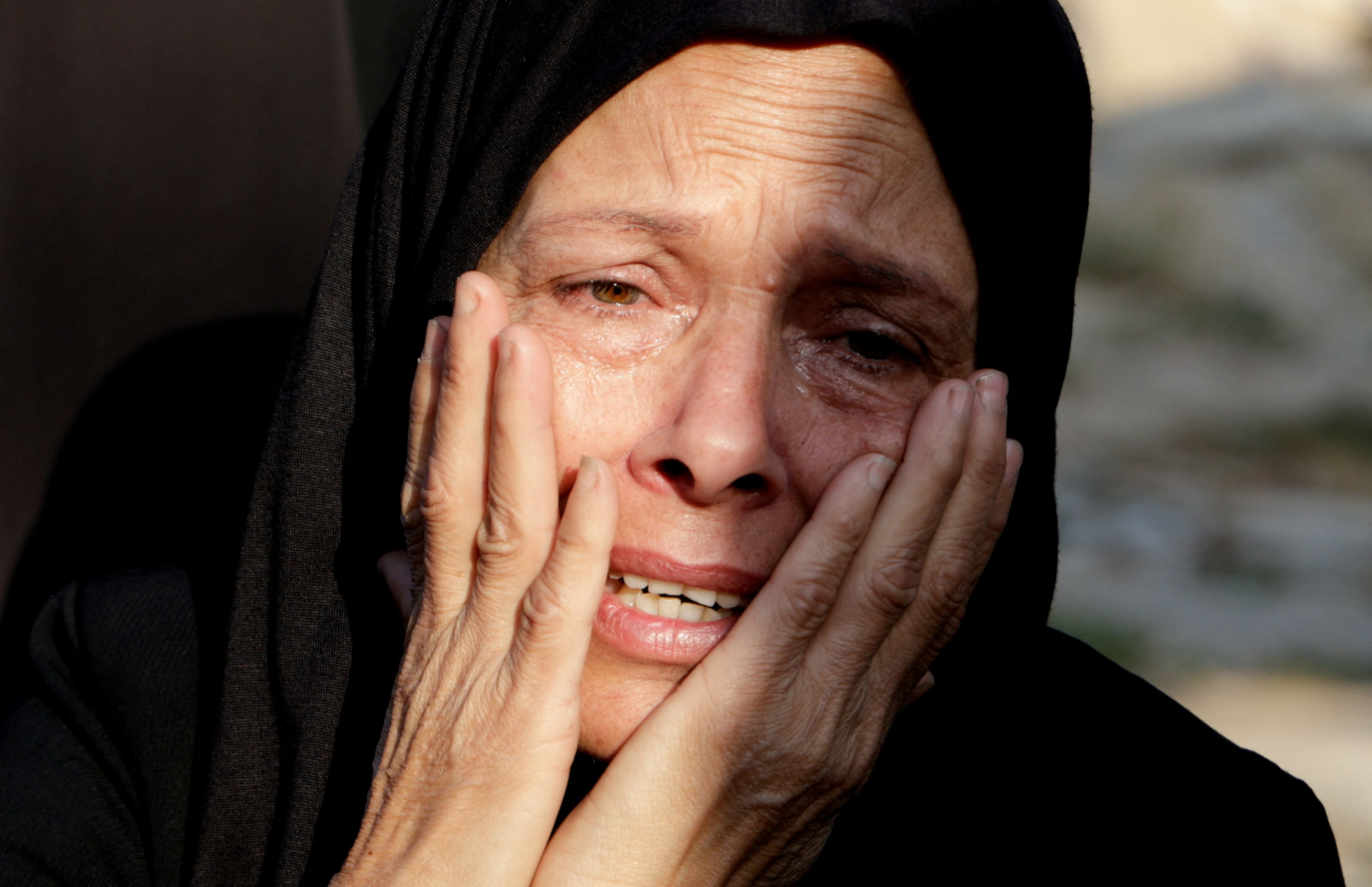Nearly a quarter of Gazas population displaced since Israel broke ceasefire UN says

About 500,000 people in Gaza have been newly displaced since Israel broke the ceasefire last month, the UN agency for Palestinian refugees (Unrwa) said on Friday.
In a post on X, the agency noted that a series of Israeli expulsion orders has rendered Palestinians with access to less than a third of the Gaza Strip.
The remaining space is "fragmented, unsafe and barely liveable", according to the UN.
Meanwhile, Israeli bombing on Friday hit al-Mawasi, a designated "safe area" in the southern Gaza city of Khan Younis, killing a family of five.
Despite Israel labelling al-Mawasi as a humanitarian zone, it has been repeatedly targeted by Israeli forces throughout the war.
New MEE newsletter: Jerusalem Dispatch
Sign up to get the latest insights and analysis on Israel-Palestine, alongside Turkey Unpacked and other MEE newsletters
The strike killed Ibrahim Abu Tema, his wife Hanadi, who was four months pregnant, and their two sons and a daughter, according to relative Rami Abu Tema.
"He is a normal civilian... Glory be to God, the news [of his death] was incredibly heartbreaking, and has impacted us as his family," Rami told Middle East Eye.
"He was everyone's friend, and loved doing good, and has never told anyone 'no'."
'Innocent children were targeted in cold blood'
- Rami Abu Tema, Palestinian citizen
Commenting on the so-called "safe zones", Rami expressed confusion over the designation made by the Israeli military, especially in light of ongoing attacks on civilians seeking shelter there.
"This is a breach. Even innocent children were targeted in cold blood."
Ibrahim’s mother, sobbing, told MEE that her "little ones" had died in the tent.
"God make it easy on them, God make it easy on you, my dear child Ibrahim... God is sufficient," she said through tears.
Earlier this year, the Palestinian human rights organisation Al-Haq published a report highlighting how Israeli "evacuation orders" and the establishment of "safe zones" are contributing to what it describes as a campaign of genocide in Gaza.
Titled "How to 'Hide' a Genocide: The Role of Evacuation Orders and Safe Zones in Israel's Genocidal Campaign in Gaza", the report states: "Mass atrocities... [are] taking place amidst regular evacuation orders instructing the entire population of the north to move south immediately so [Israel] can resettle the area.
"Despite being unilaterally established by Israel, the Israeli military routinely targets both the [safe] zones themselves as well as the routes it has instructed forcibly displaced Palestinians to use as they flee in search of ever-evasive safety."
'Seeing your son burn'
Israeli forces killed at least 78 Palestinians between Thursday and Friday, according to the Palestinian health ministry.
Jamal al-Taweel, a displaced Palestinian, told MEE he was jolted awake at 2.30am (11.30pm GMT) when quadcopters attacked their tents. He rushed to wake his wife and children as flames engulfed their shelter.
'Imagine seeing your son burn in front of you and you can't do anything to save him'
- Jamal al-Taweel, displaced Palestinian
"I woke up thinking I was in a dream - fire and smoke surrounded me... I woke up and I found the tent up in flames," he said.
As he turned to his wife to check on the children, they realised their youngest son - just three years old - had been left behind in the tent, mistakenly believing he had already been evacuated.
"I went back to the tents, only to find him charred... I came back to find the fire eating at him," he recounted, breaking down in tears.
"The children have been deprived of everything, even safety... Imagine seeing your son burn in front of you and you can't do anything to save him... God is sufficient."
Since 7 October 2023, Israeli forces have killed more than 51,400 Palestinians in Gaza, including over 15,000 children.
Malnutrition under Israeli blockade
According to Unrwa, displaced Palestinians in the Gaza Strip "face growing environmental and public health risks", including limited access to essential services, poor sanitation and waste accumulation, which has led to the spread of insects, fleas and rodents.
"Supplies are rapidly running out, displacement continues, and daily survival is a struggle," the agency said earlier this week.
Dr Ahmed al-Farra, director of al-Tahrir hospital for paediatrics and maternity at the Nasser Medical Complex, warned earlier this week that Palestinian children are facing "the most severe stages of malnutrition".
In a post published by the Palestinian health ministry, he noted that medical check-ups are hindered by shortages of medication and infant formula.
"The Gaza Strip is experiencing stage five of malnutrition, the most severe stage according to the World Health Organization," the post read.
It further warned that the lack of adequate nutrition and medication for pregnant women will have serious consequences for newborns.
"The continued blockade of food and medicine supplies indicates that children in the Gaza Strip are facing a dangerous and catastrophic situation," it added.
The humanitarian crisis in Gaza has been worsened by the near-total halt in aid deliveries after Israel imposed a complete blockade last month - one it has indicated will remain in place.
According to a report by Israeli news outlet Walla, the Israeli military is reportedly unconcerned by the worsening humanitarian conditions in Gaza. The enclave has now gone 53 days without receiving any humanitarian aid since the blockade was enforced.
Sources within Israel’s Southern Command, speaking to Walla, estimated that “in two weeks, a significant crisis will begin in the Gaza Strip regarding food, medical equipment and medicines”.
middleeasteye.net